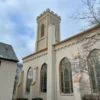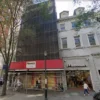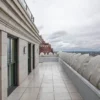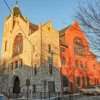By Peter Crimmins
December 7, 2021 | Source Article
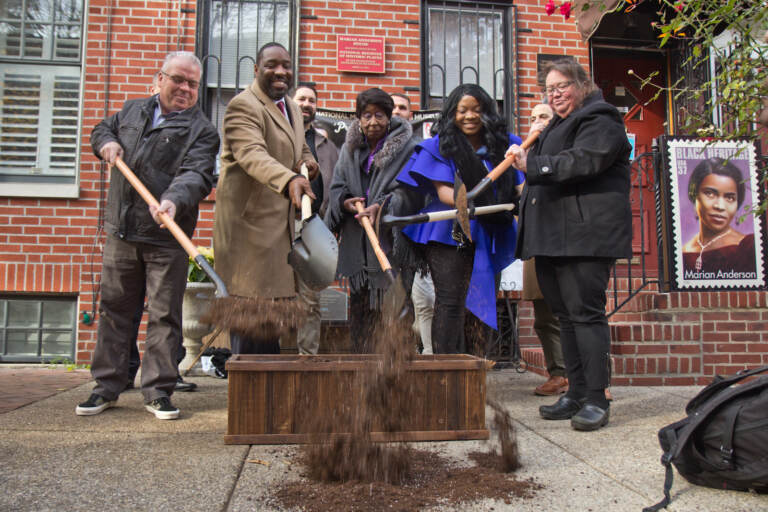
Board members of the Marian Anderson Museum, Philadelphia Councilmember Kenyatta Johnson, Jillian Patricia Pirtle, CEO of the Marian Anderson Museum and Historical Society, preservation groups, and contractors ceremoniously broke ground on restoration efforts at the Marian Anderson Museum in South Philadelphia on Dec. 7, 2021. (Kimberly Paynter/WHYY)
The Marian Anderson Historical Society is beginning restoration work on its house museum in South Philadelphia that suffered flooding damage in 2020, having raised about half of the $500,000 cost.
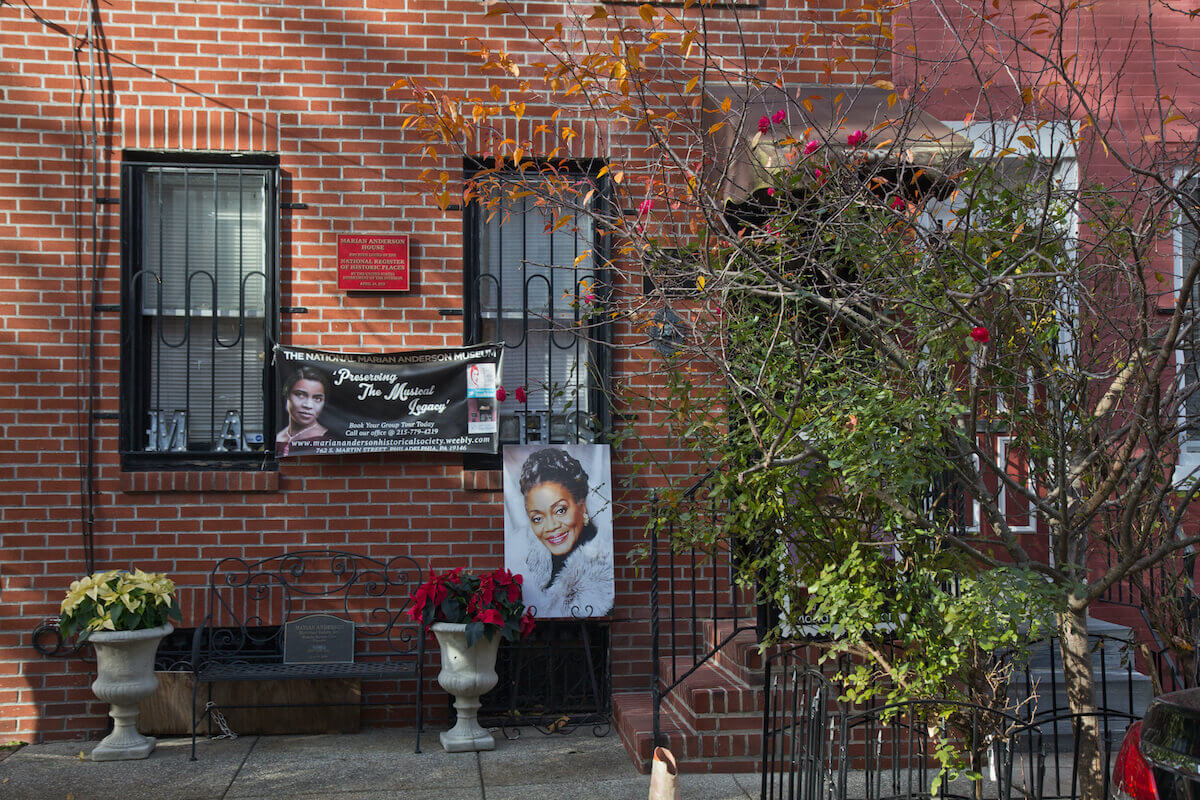
The Marian Anderson museum on Martin Street in South Philadelphia. (Kimberly Paynter/WHYY)
The rowhouse where the famed opera singer and civil rights icon lived on Martin Street closed to the public in March 2020, due to the pandemic. Without staff present, nobody noticed when a basement water pipe burst in June of 2020.
Water flowed into the finished basement unchecked for 36 hours. Water also bubbled up the drain of the kitchen sink, flooding the first floor. By the time CEO Jillian Patricia Pirtle entered the house, there was more than three feet of standing water in the basement, where historic artifacts were displayed.
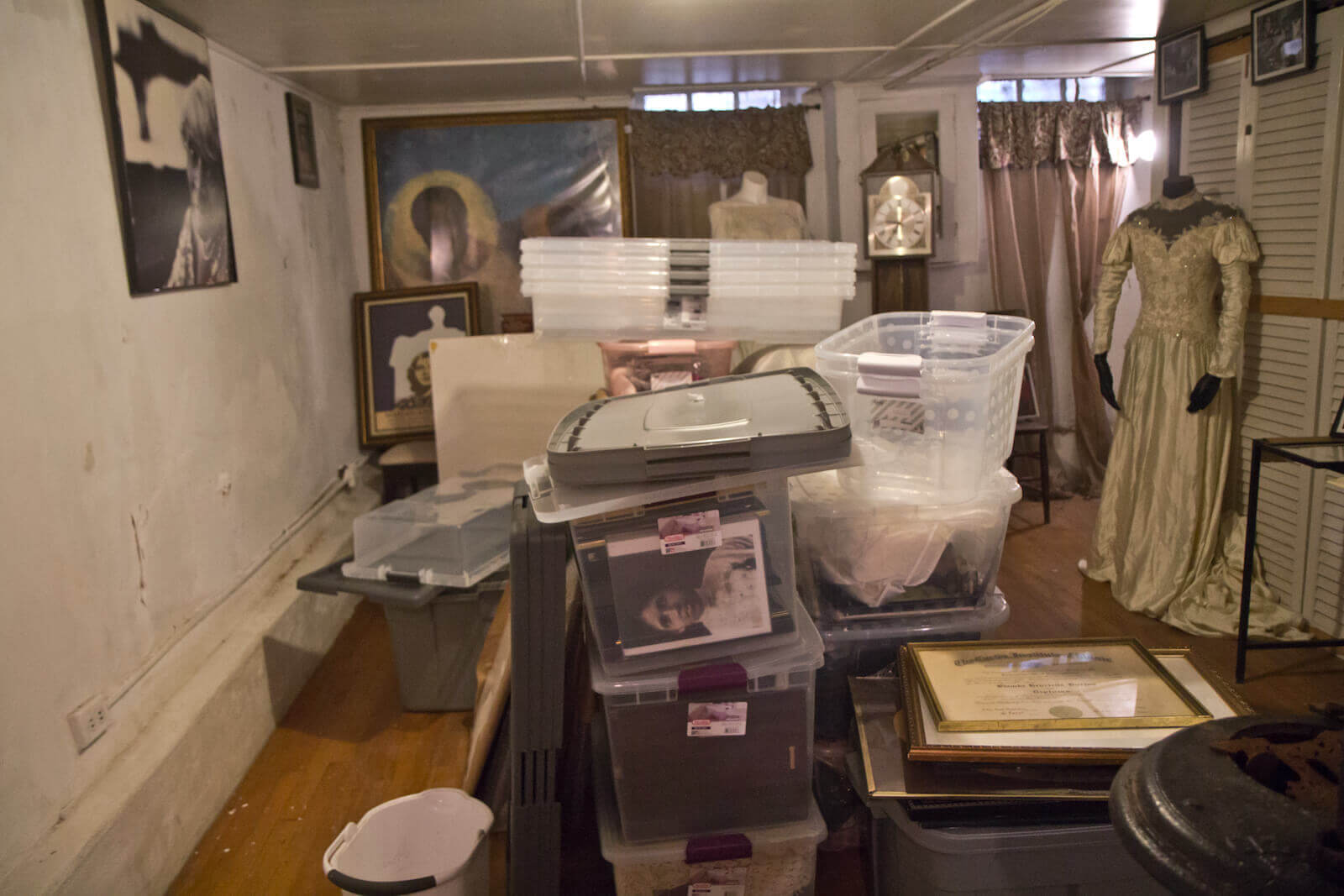
Flooding in the basement of the Marian Anderson Museum, once an exhibit on the museum tour, damaged artifacts and damaged floors in August 2021. (Kimberly Paynter/WHYY)
The water has been pumped out and the house stabilized, but damage remains.
“Some materials are lost forever. Some sheet music, some letters, some historic furniture items, a few dress materials,” said Pirtle. “It’s just sad. Water does so much damage.”
At the time, Pirtle said the future of the museum seemed dire.
“We had no help, no support, no one to look to. We tried to apply for every grant, every loan, every everything, and we were not given priority,” she said. “We looked to the community for help and support and kindness. It was those spirits, those souls that started the process of trying to get us the help that we needed.”
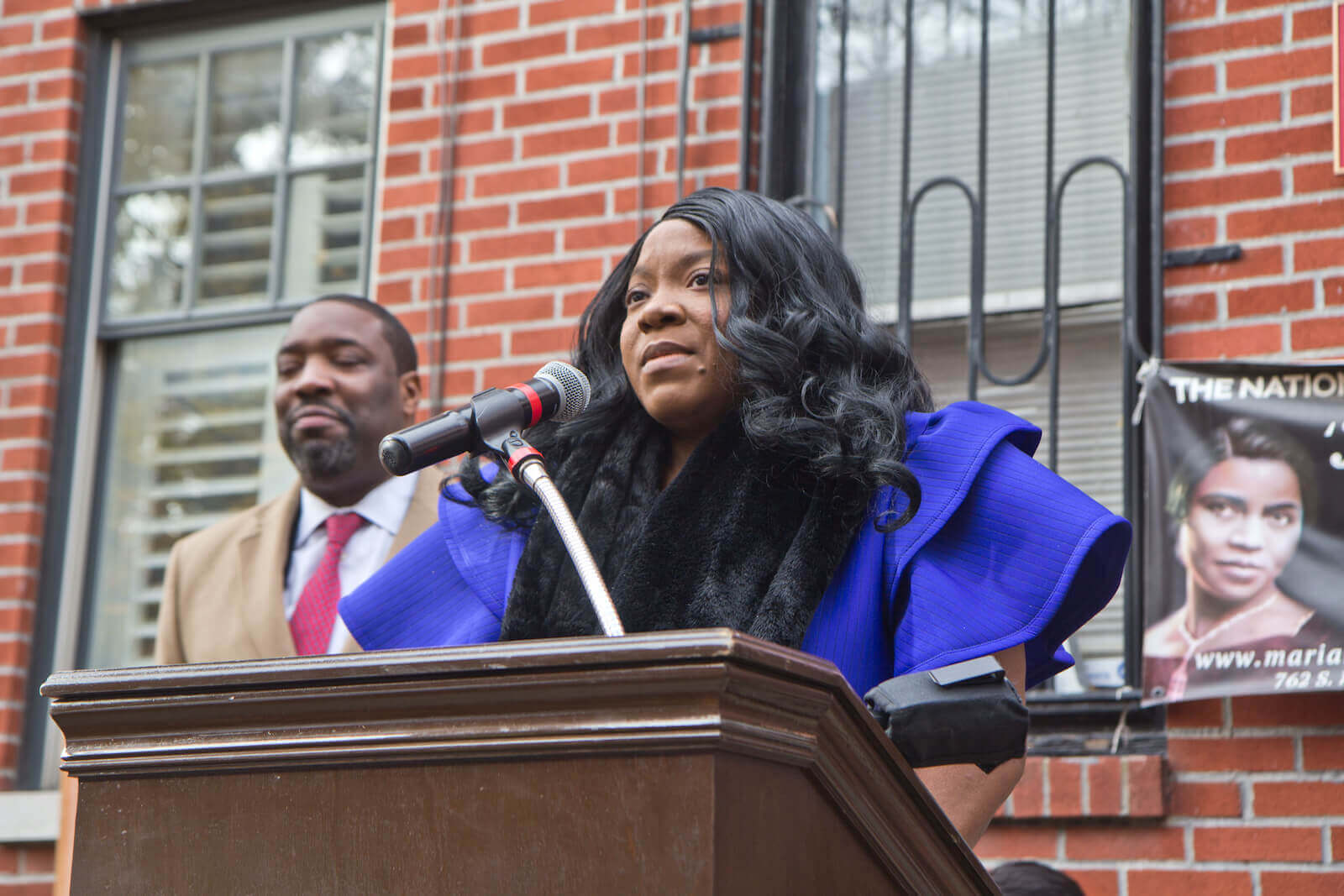
Jillian Patricia Pirtle, CEO of the Marian Anderson Museum and Historical Society, said she’s cried every day since a flood damaged the structure of the museum over the summer. (Kimberly Paynter/WHYY)
The Preservation Alliance for Greater Philadelphia inspected the premises for water damage as well as deferred maintenance on the historic landmark. The inch-thick assessment report – which includes non-flooding issues like repointing the brick facade, replacing the windows, and installing a modern HVAC system – put the total repair cost at $491,000.
“The museum has struggled with funding for a long time, for capital investments,” said Jennifer Robinson, director of preservation services for the Alliance. “Things like a roof replacement, things like brick repointing, window restoration, all of that are things that come up for any property owner. We’re trying to address them all at once.”
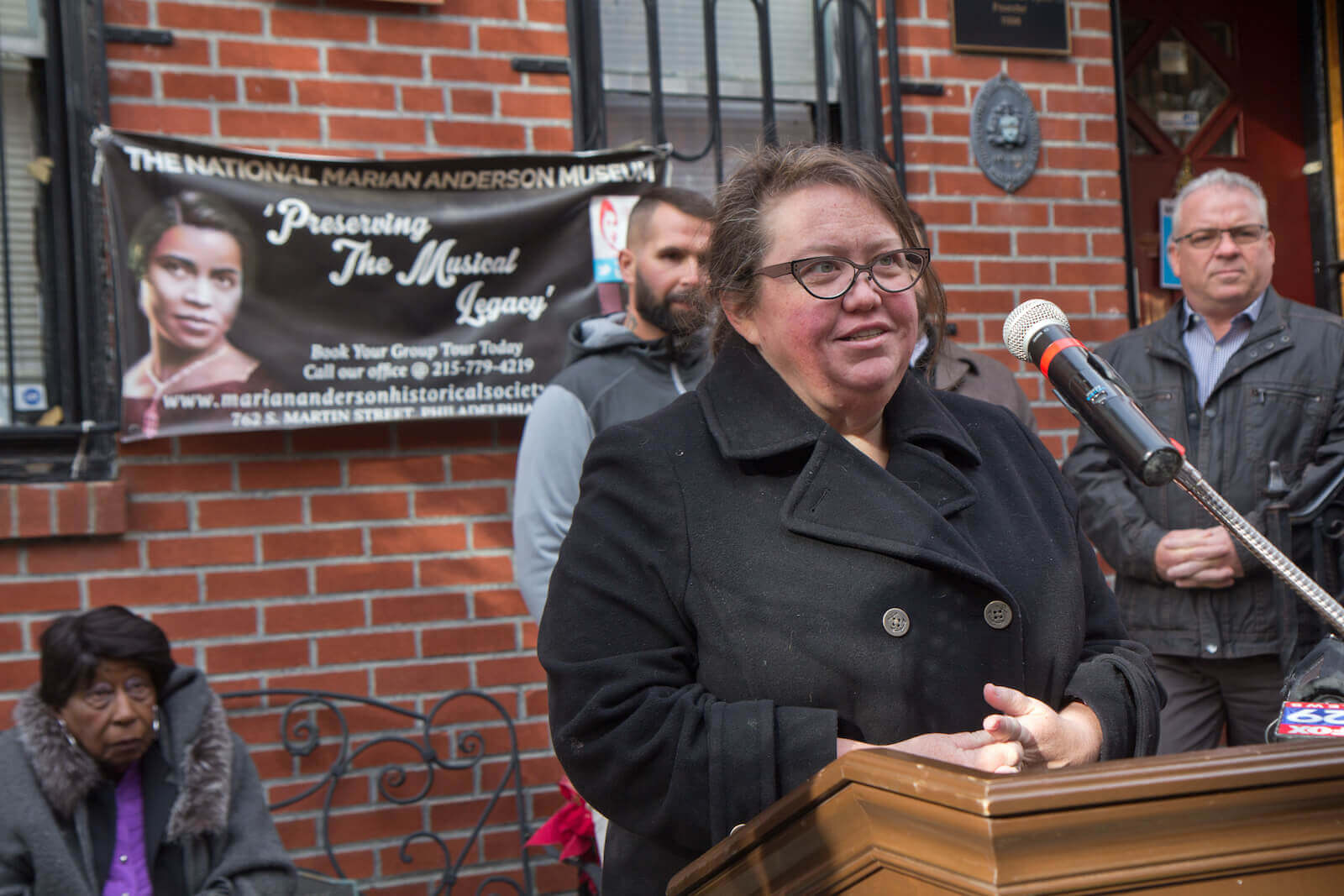
Jennifer Robinson is the director of preservation services for the Preservation Alliance of Greater Philadelphia. (Kimberly Paynter/WHYY)
With a $75,000 grant from the National Trust for Historic Preservation, $105,000 from the city budget with another $50,000 promised from a recent distribution of arts funding, and the Marian Anderson Society’s own GoFundMe campaign currently at just over $28,000, the museum is giving the green light for contractors to come in and start work.
Marian Anderson bought the 1857 brick rowhouse in 1924, living in it when her career began its dramatic trajectory: debuting with the New York Philharmonic in 1925, performing in Carnegie Hall in 1928, and – most famously – singing outdoors in 1939 at the Lincoln Memorial in Washington D.C., a concert arranged by First Lady Eleanor Roosevelt after Anderson was denied an appearance at Constitution Hall by the Daughters of the American Revolution because she was Black. The Washington concert was broadcast on the radio to millions of listeners across the country.
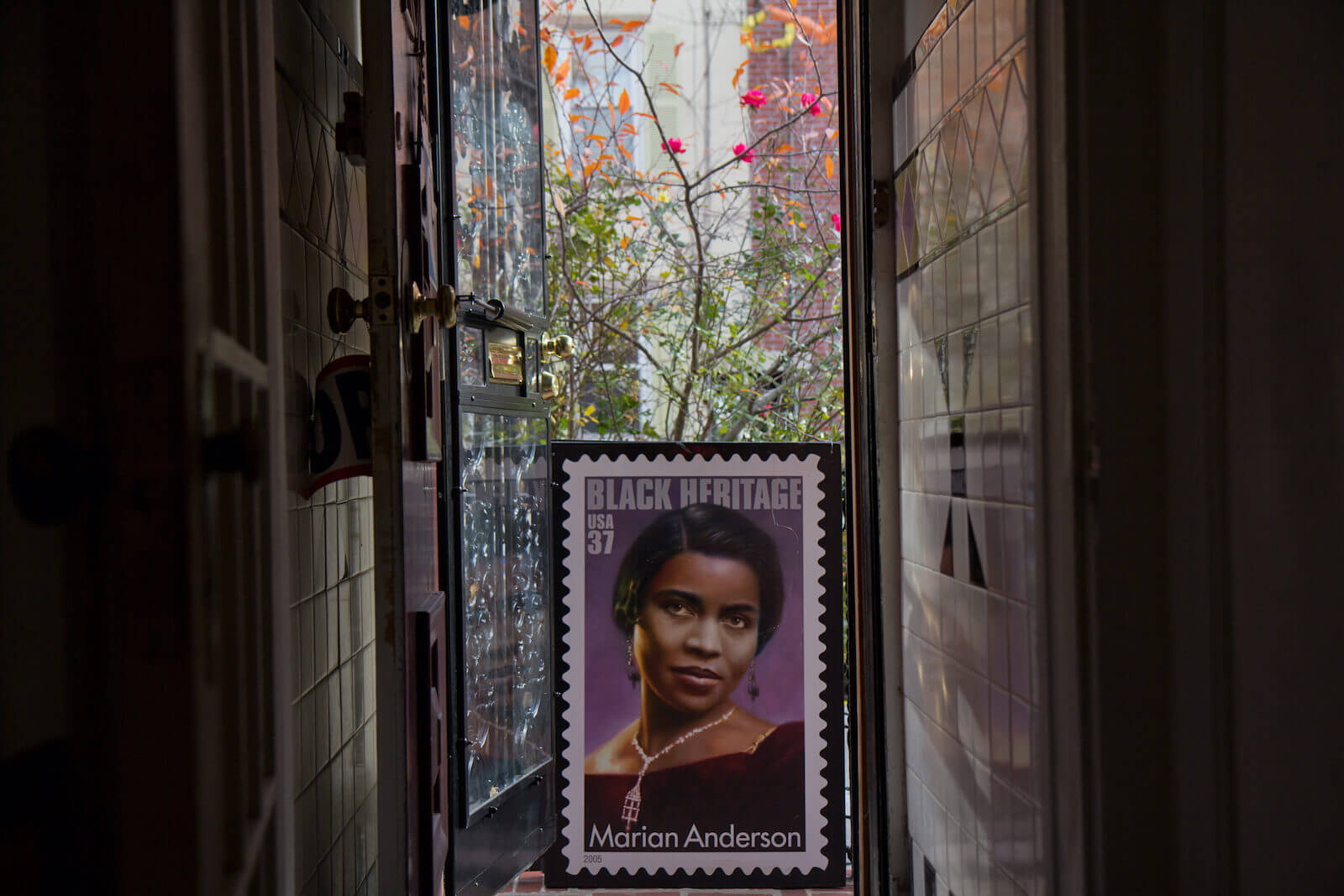
The Marian Anderson museum on Martin Street in South Philadelphia. (Kimberly Paynter/WHYY)
Anderson continued her career until 1965, singing internationally, performing at two U.S. presidential inaugurations, and becoming the first African American musician to sing with the Metropolitan Opera in 1955. She died in 1993.
By 1943, Anderson had moved out of the rowhouse to live in a farmhouse in Connecticut, at which time her mother and sister used the Philadelphia house. It has the original parquet flooring, original plaster walls, and the same basement Anderson had converted into a parlor for performances and social gatherings of local and nationally touring African American musicians.
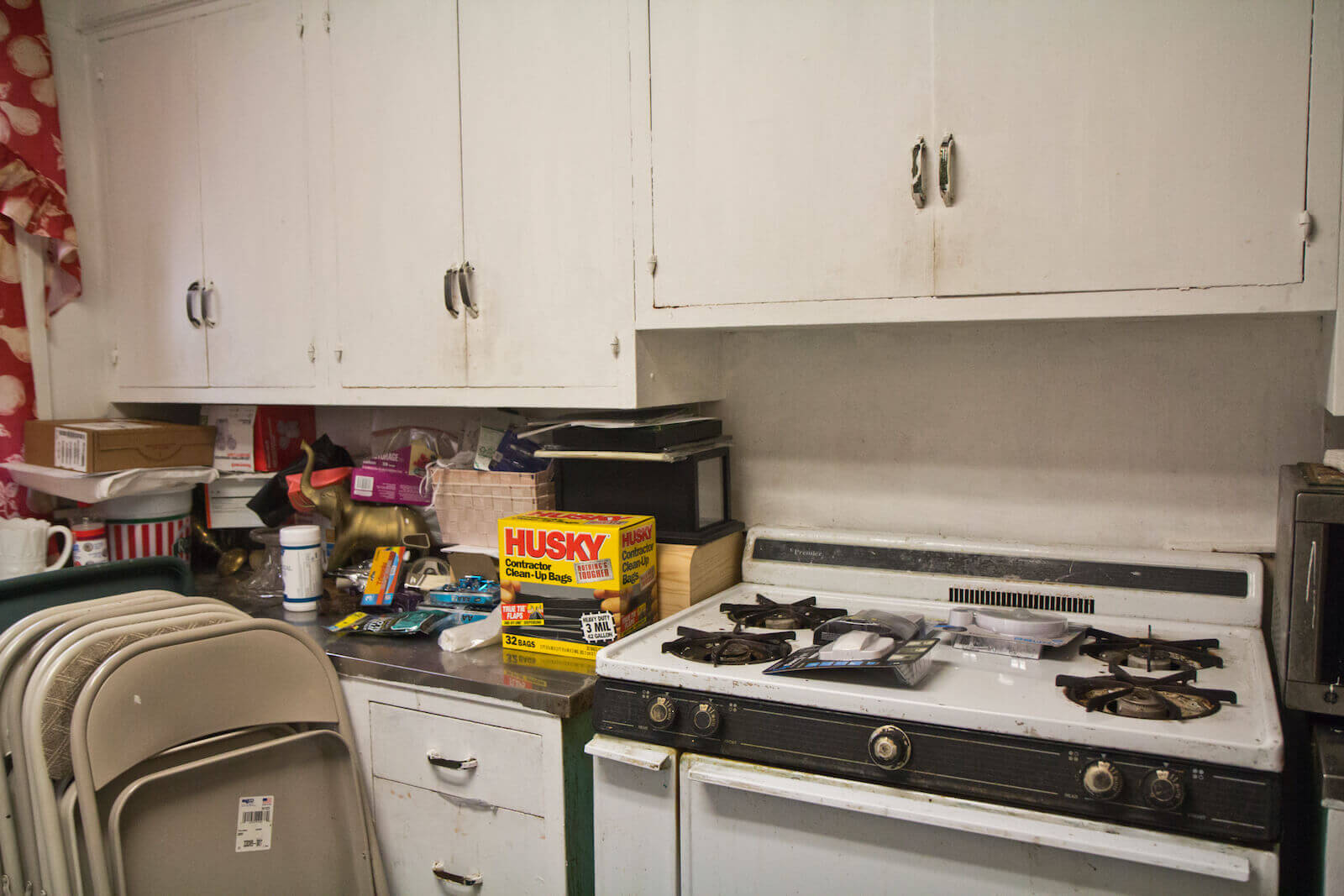
Marian Anderson’s original cabinets and stove are part of the museum restoration efforts. (Kimberly Paynter/WHYY)
Restoration work will bring modern plumbing, electrical, and climate control systems into the historic house, while retaining the existing early 20th century elements that Anderson would have lived among. For example, the midcentury bathroom will be remodeled to give it more space, but the 1930s kitchen cabinetry, which Anderson herself had a hand in designing, will remain.
Pirtle hopes enough work will be completed by February to be able to host a limited number of visitors for a celebration of Anderson’s birthday on February 27. Full restoration is not expected to be done until mid-2023. The museum has been closed to visitors since the pandemic shutdown in March 2020.
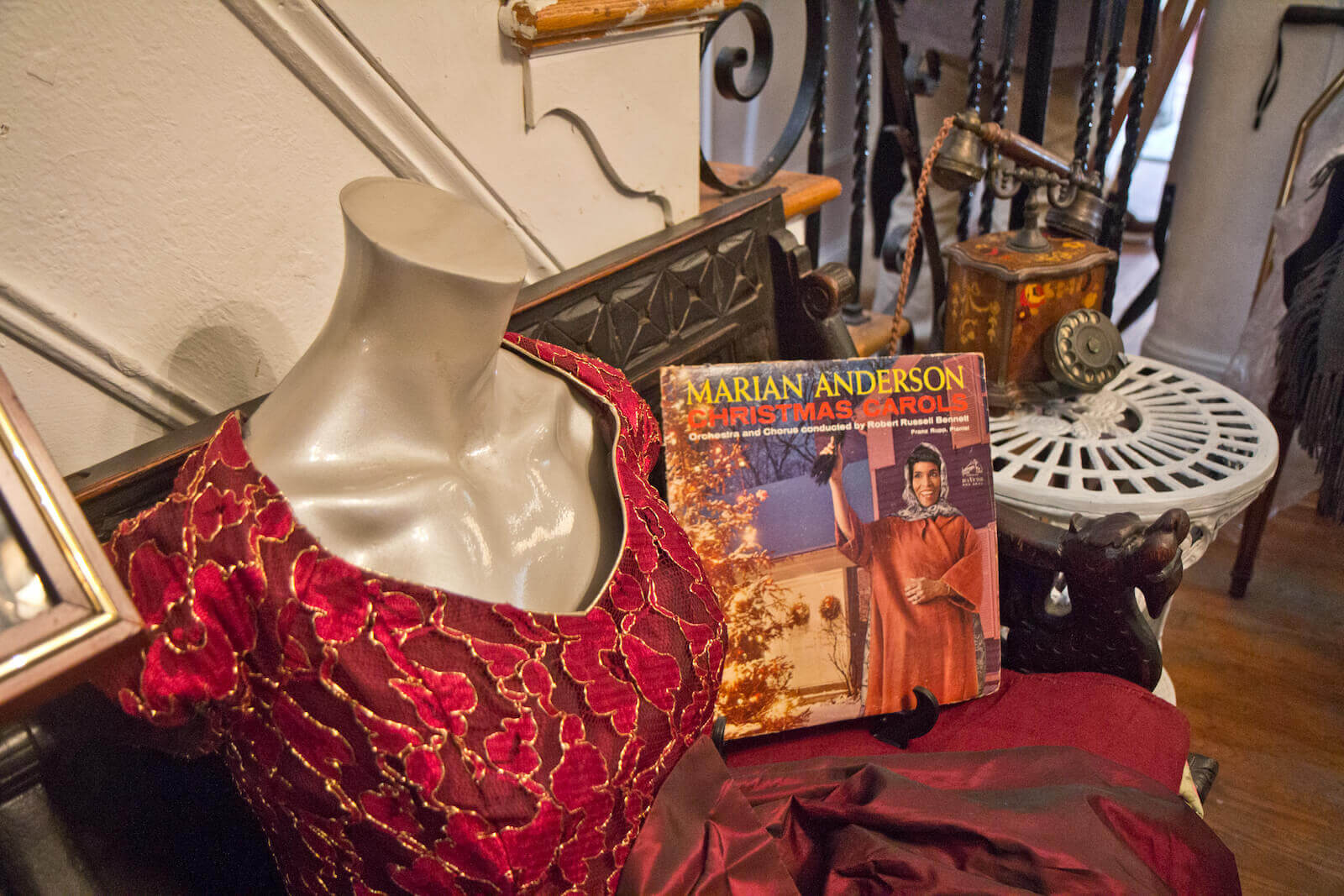
A Christmas themed exhibit at the Marian Anderson museum on Dec. 7, 2021. (Kimberly Paynter/WHYY)
Two of the contractors – Premiere Building Restoration and BQ Basement Systems – are giving $20,000 worth of in-kind services, but with just over half of the money needed to finish the work in hand, the museum is seeking more contributions. Councilmember Kenyatta Johnson, in whose district the museum lies, has been rallying support for the restoration and says he is working to have the Marian Anderson Museum become a permanent line item in the annual city budget.
“The same way we support every year the African American Museum, the same way we support every year the Swedish Museum, the same way we support every year the Betsy Ross House,” said Johnson. “That same way we are going to support the Marian Anderson historic museum.”
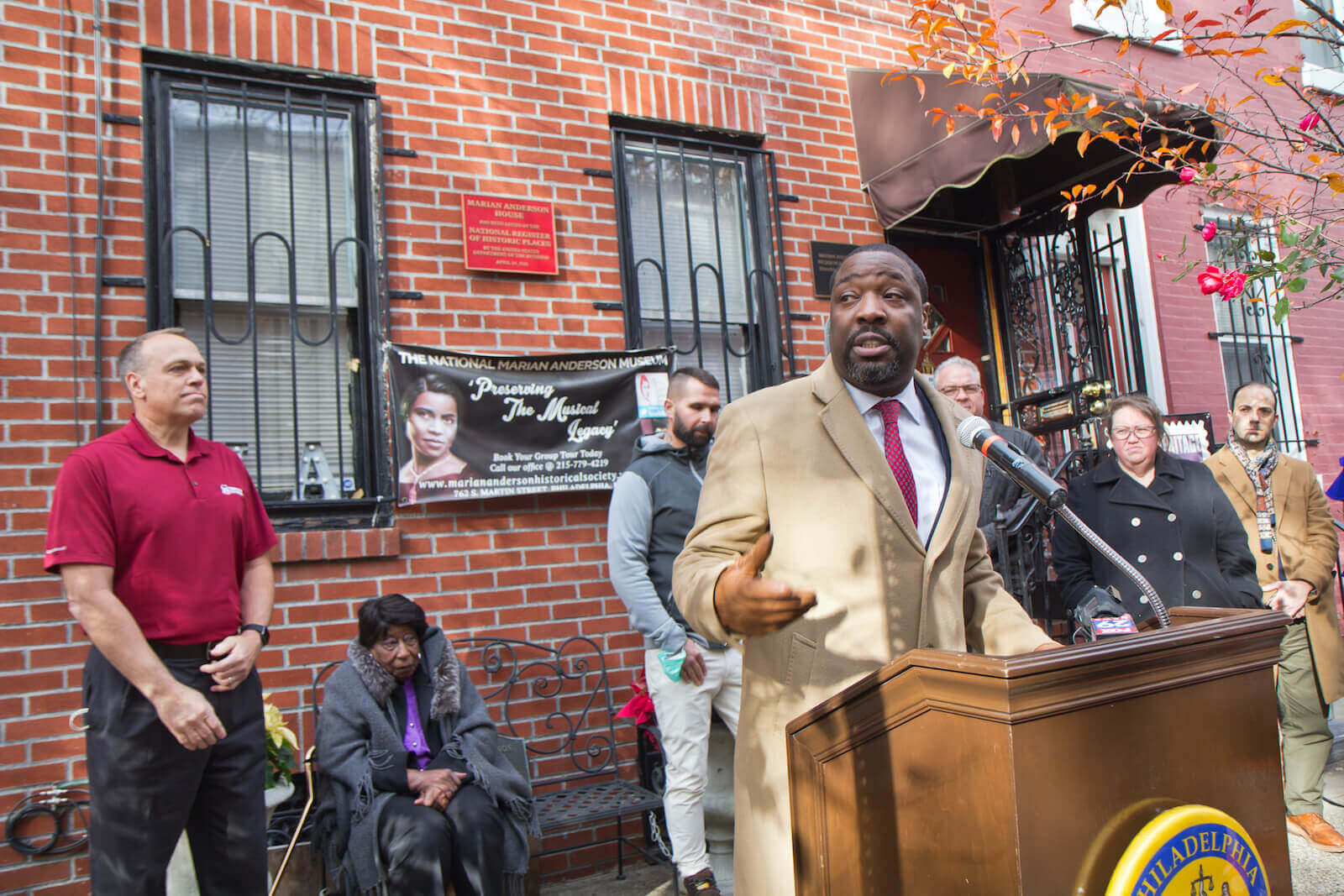
Philadelphia Councilmember Kenyatta Johnson said the Marian Anderson Museum in South Philadelphia should be sustained like the Betsy Ross House is at a ceremonial groundbreaking to launch preservation efforts on Dec. 7, 2021. (Kimberly Paynter/WHYY)
Contact Premier Building Restoration




